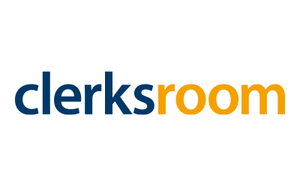Free speech at work

Have a question? If you have any comments or feedback around this content, please get in touch.
This session will addresses the challenging and sensitive topic of free speech at work – a much misunderstood area of employment, equality and human rights law. It will provide an overview of the legal frameworks regulating free speech at work: the Employment Rights Act 1996, the Equality Act 2010, the Human Rights Act 1998, case law and statutory codes of practice. It will look at the restrictions on speech that come with an understanding of the employee as the ambassador of an employer who may not speak and act freely where his or her free speech will bring the employer’s reputation into disrepute. It looks at the ways in which social media and working from home have blurred the line between our identities as employees and as private citizens, and concludes with some suggestions as to how employees and employers can avoid legal conflicts that may arise from free expression in the workplace context.
This on-demand title is aimed at a general audience of (employment) lawyers and non-lawyers as an introduction to the legal frameworks governing free speech in the employment context. It will:
- Provide an overview of the relevant sources of law and key principles which protect and limit speech in the employment context (from the perspective of employees and employers), looking at the construal of European Convention rights in the employment context, including the right to freedom of thought, conscience and religion under art. 9 ECHR and its relevance for protection of free speech under art. 10.
- Briefly review the case law on the protected characteristic of religion or belief under the Equality Act 2010, to ask whether the employer’s satisfaction of the ‘reasonable responses’ test under s98 of the Employment Rights Act 1996 is fit for the purpose of protecting political speech in a democracy.
- Address some of the thornier issues raised by the ubiquitous use of social media in our society asking whether our culture is likely to continue to value freedom of expression at work if employers are increasingly given a moral safeguarding role to ensure that the speech of employees is not deemed offensive to the sensibilities of others.
Learning objectives:
- Provide an overview of the relevant sources of law and key principles which protect and limit speech in the employment context (from the perspective of employees and employers)
- Looking at the construal of European Convention rights in the employment context, including the right to freedom of thought, conscience and religion under art. 9 ECHR and its relevance for protection of free speech under art. 10
- Briefly review the case law on the protected characteristic of religion or belief under the Equality Act 2010
- Address some of the thornier issues raised by the ubiquitous use of social media in our society.

Dr Anna Loutfi
Barrister • Clerksroom Chambers
Anna was called to the Bar in July 2019. She is a legal researcher and judicial assistant at the Dickson Poon School of Law (King’s College London), and has a nuanced understanding of Strasbourg jurisprudence and public law remedies in the context of employment, having assisted in several high-profile judicial reviews. She holds a PhD in Legal History with over 15 years’ experience of teaching and research in the university sector, grounding her specialism in academic freedom of expression and free speech at work. Anna is the producer for King’s College London’s, The Verdict podcast series, which asks high profile legal figures to translate complex legal topics into accessible content.
Have a question?
Recommended for you
© 2025 All rights reserved For Media Group Registered in England No. 13063455 VAT Registration Number GB367031995




